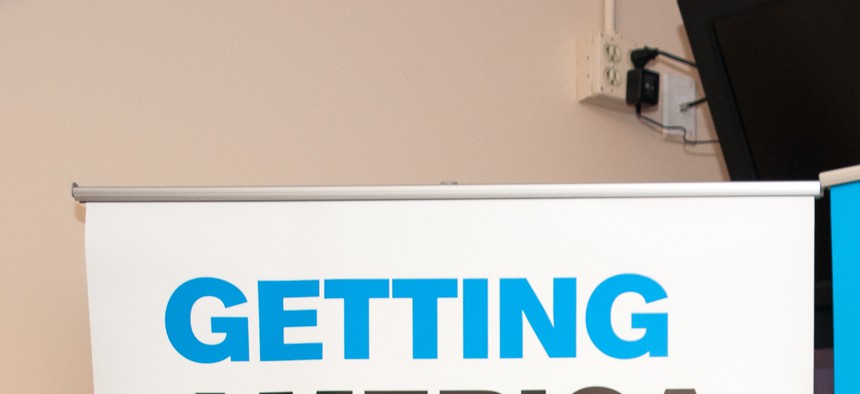
A sign advertising the administration's health care marketplace is shown in Chicago in 2013. HHS
Obamacare Hasn’t Driven Up Employers' Health Care Premiums
Employer-based health care coverage is seeing modest price increases.
Employer-based health care—the system that serves about half of all Americans—is seeing modest premium increases, but employers are passing more and more costs on to their workers.
The average premium for employer-based coverage rose by 3 percent this year, according to the Kaiser Family Foundation's annual survey of the employer insurance market. That's slightly more than the average increase in wages, but still a pretty nominal increase.
Premiums have grown significantly slower over the past five years than they did in the preceding five years, and a 3 percent increase is a big improvement over the double-digit hikes employers saw in the late 1990s, Kaiser said in its report.
But there's a catch: Employees are on the hook for more and more of their health care costs. Premiums are increasing so slowly in part because employers are continuing to shift toward higher deductibles, requiring employees to pay more out of their own pockets before their health care plans kick in.
The average deductible has risen by almost 50 percent since 2009, according to Kaiser. It's now more than $1,200 per year. Eighty percent of all covered workers now have an annual deductible, and 41 percent have a deductible of more than $1,000.
Co-pays for doctors' visits and prescription drugs, meanwhile, have stayed relatively flat.
Small businesses have driven the shift toward higher-deductible plans, and they generally cover less of their employees' health care costs than larger firms. Employees' share of their health care costs has been rising steadily since 2006, according to Kaiser's data.






